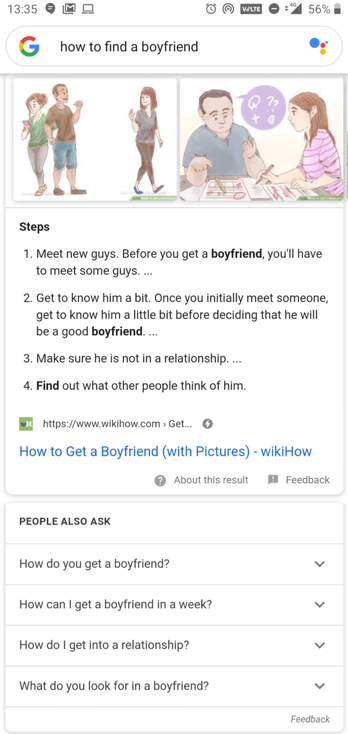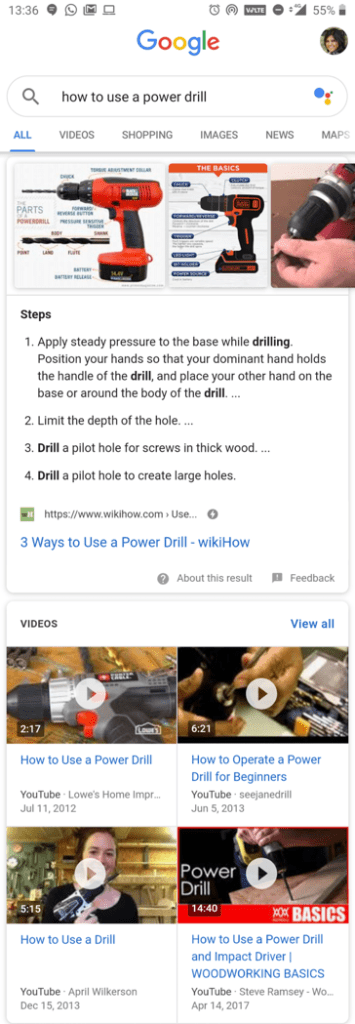I see the potential bias in my answering this question, since I run a content writing agency (one of the best ones in Mumbai, if I may say so myself, cough cough). So, let me attempt to remove some of the sharp edges of that bias by using the ever so credible Google as my trusted partner. I love examples, so in this blog post, I’ll use real-life Google search results to explain to you why blogging is still extremely relevant, under what circumstances, and what’s in store for the future.
Blogging’s Traditional Advantages
In the last five years, blogging has been used (and misused) mainly to rank websites higher on search engine results. This has led to a ton of bad blogs with terrible content online. So much so that when I was recently reading up about how a day or two of fever doesn’t require you to go to the doctor, my husband reminded me how it was probably just some content writer’s opinion. And boy did that bother me! However, Google’s algorithms are constantly trying to beat the gamers of the SEO system by trying to ensure that only good quality blogs and web content appear in top results. What is a top quality blog? Put simply, a blog that answers the reader’s question quickly without beating around the bush. With the help of a good blog, a brand’s website can be easily discovered by the reader, increasing the brand’s chances of making a sale.
Competition to Blogging
Attention spans have been slipping and this has been a heated topic of discussion on the internet. My favourite (/sarcasm/) quote is by Nadjya Ghausi who opines that “many people believe that their attention spans are shrinking. But they’re not. They’re evolving.” Right. Tom-ay-to, to-mah-to. But never mind my cynicism towards those who try to give a positive spin to everything. The facts are that people would rather watch a video than read, the latter being more effort intensive. That’s why some even claim that video will comprise of 80% of all internet traffic in 2019. Does this mean the death of blogging as we know it?
The SERPs Don’t Lie
So, do blogging’s traditional advantages continue to be accrued or are they slowly dwindling due to video competition? To answer that question, let’s see what the Search Engine Results Pages (or SERPs) show, because that is the true test of what Google thinks would answer the question best. I tried four different types of queries:
- A how-to life query
- A how-to product query
- A how-to service query
- A best product query
And, as you may have guessed – the SERPs view differently for each of these.
How-to Life Query
Here are the results for the query – “how to find a boyfriend.”

As you can see, the first link is a blog, followed by a PAA (People Also Ask) section. When you open up any of those PAA sections, you will again see snippets from blogs.
If you keep scrolling down, here’s what you get.

As you can see for yourself, most search results are blogs or Quora answers, with one lonely YouTube video in between. The reason for this is that life skills are harder to show and easier to tell. Even the video you see is basically a person telling you how to do it. If your website is educating people on life, health, money, or anything that needs a longer explanation, blogs rule.
How-to Product Query
The SERPs change slightly, however, when you are trying to figure out how to do something with a product. As an example, I searched for “how to use a power drill” and saw these results.

Like the first result of the how-to life query, this query, too, brought up a Wikihow blog (Wikihow has some amazing SEO power when it comes to how-to questions). After that, however, it’s video after video after video. This is unsurprising; after all, it’s easier and faster to show someone how to use a power drill rather than tell them. But then scroll further and see what happens.

Wikihow again, then blog + video, then blog, then PAA, followed by blog, blog, blog, and blog. Even when it is easier to show than tell, blogs continue to appear in the search results.
How-to Service Query
What happens when there is nothing to show at all? So, I tried running this query, “how to choose content writer” which is basically something someone would search for when they want to avail of or evaluate content writing services. This time, the SERPs were completely one-sided.

No images, no videos. The SERPs are pure textual blogs. This is especially insightful for B2B businesses that are in the service industry. You can’t show someone how to choose, what you can do is tell them what attributes to look for, and that makes blogging essential.
Best Product Query
Okay, so when somebody is searching for how to do something, blogs seem to be all too pervasive. But, what happens when someone wants to know the best product from the innumerable product choices they have? I searched for “best running shoes for women in India” and the results were as follows.

What do we see? Lo and behold! Blogs!
So, Is Blogging Still Relevant?
Blogging is still the number 1 method that Google uses to answer people’s queries. Every single example we saw above shows that. Text is still key for the search engine to understand whether a searcher’s question is answered.
One additional insight these examples give us – if you want to use a video, use it with text to help the search engines crawl your content better. And yeah, at the risk of repetition, blogging is still relevant and will be for the next 10 years if not more!

